Pittsburgh City Council members (from left) Theresa Kail-Smith, Bob Charland, Anthony Coghill, Khari Mosley and Bobby Wilson listen to Councilor Erika Strassburger speak in favor of her inclusionary zoning amendment on Wednesday, Oct. 15, 2025 at the City-County Building. Council voted to approve Strassburger’s amendment 5-4 after debate. (Alex Jurkuta/Pittsburgh’s Public Source)
Mayor Ed Gainey’s bid to require affordable units in all major new housing developments would become a voluntary measure under a councilor’s narrowly approved amendment.
“Pittsburgh’s Public Source is an independent nonprofit newsroom serving the Pittsburgh region. Sign up for our free newsletters.”
Wednesday’s council meeting, accompanied by obscenity-filled asides, was the latest phase of more than a year of efforts and counterefforts to alter Pittsburgh’s housing zoning policies in an increasingly dizzying merry-go-round.
At the center of the merry-go-round are the office of outgoing Mayor Ed Gainey, pushing for low-income housing mandates across the city, a divided City Council and the City Planning Commission.
Council voted 5-4 to amend Gainey’s inclusionary zoning legislation, removing a requirement that any development with more than 20 housing units must include at least two affordable units. Councilor Erika Strassburger proposed the amendment removing that requirement, instead providing developers with a choice to include affordable housing in new developments, using subsidies as an incentive.
“We’ve been speaking about this for a long time, discussing major housing reforms practically nonstop for over a year,” Strassburger said. “My stance hasn’t changed, I’m willing to work with anyone to craft a comprehensive housing policy that will increase affordability and housing access.”
Strassburger called her amendment a compromise and said she would support “an inclusionary zoning policy that increases the supply of housing units without discouraging construction of residential production.”
Many members of the public who showed up voiced opposition to Strassburger’s amendment.
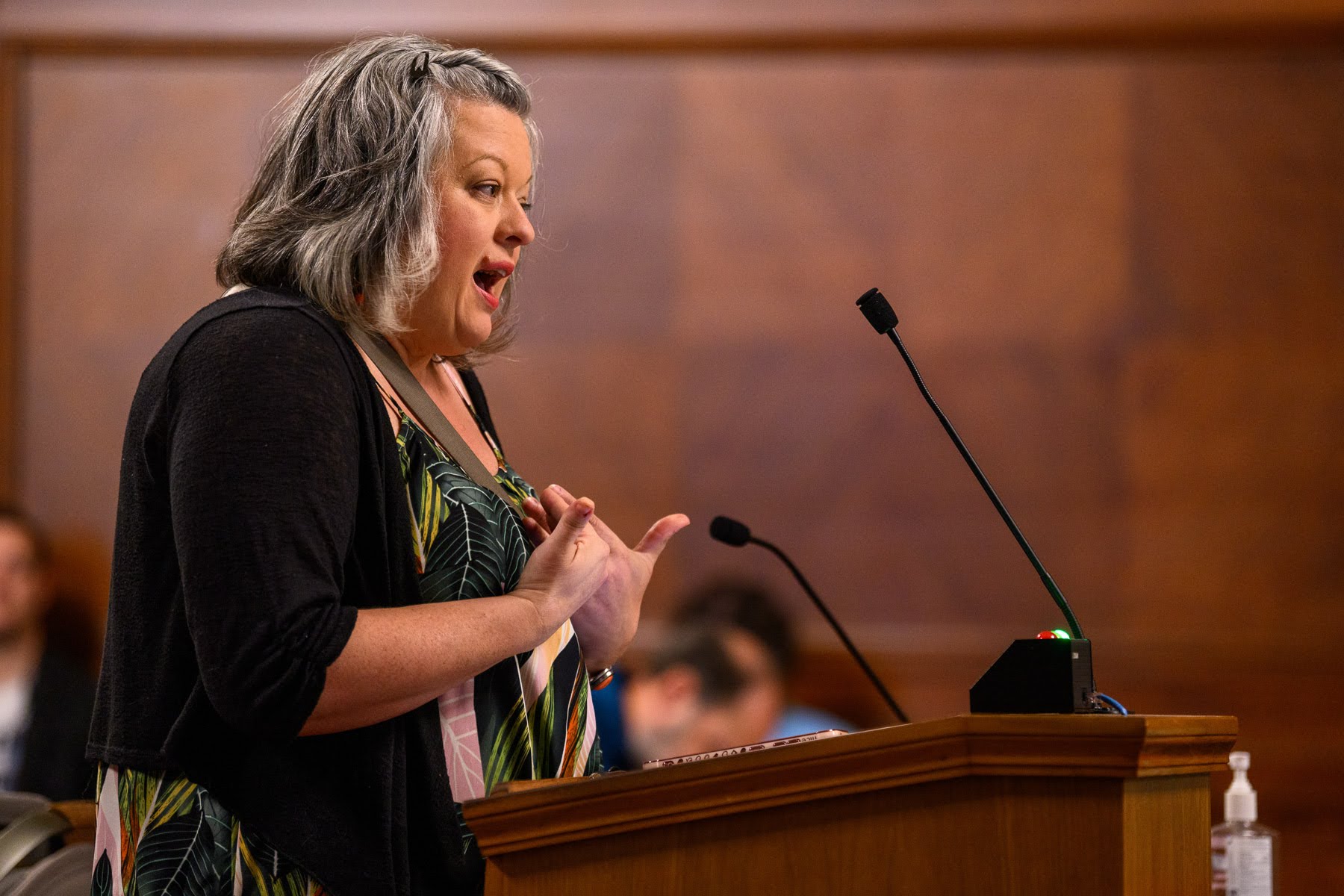 Danielle Graham-Robinson of Brighton Heights speaks against Pittsburgh City Councilor Erika Strassburger’s inclusionary zoning amendment on Oct. 15, at the City-County Building. Council voted to approve Strassburger’s amendment 5-4 after debate. (Alex Jurkuta/Pittsburgh’s Public Source)
Danielle Graham-Robinson of Brighton Heights speaks against Pittsburgh City Councilor Erika Strassburger’s inclusionary zoning amendment on Oct. 15, at the City-County Building. Council voted to approve Strassburger’s amendment 5-4 after debate. (Alex Jurkuta/Pittsburgh’s Public Source)
“Inclusionary zoning cannot be optional, it must be mandatory,” Teaira Collins of Greenfield told council. “The city is prejudiced. You don’t want me living next door to you but you’re fine with pushing me out of the city. Stop saying you’re doing something for us and start doing it.”
The zoning overlay is currently in place in Lawrenceville, Bloomfield, Polish Hill and the majority of Oakland, but is also the subject of a lawsuit filed by the Builders Association of Metropolitan Pittsburgh, which opposes the rules.
In September 2024, Gainey announced plans to spread inclusionary zoning beyond its current borders. City Councilor Bob Charland drew up an alternative zoning bill. In January, during an 11-hour meeting, the City Planning Commission recommended for Gainey’s version and against Charland’s, sending the matter to council. With the swing coming full circle, council is now sending the issue back to the commission, this time to weigh in on the amended zoning expansion.
 Mayor Ed Gainey reads documents as he gives a bus tour of affordable housing across Pittsburgh on April 23, in the East End.(Photo by Stephanie Strasburg/Pittsburgh’s Public Source)
Mayor Ed Gainey reads documents as he gives a bus tour of affordable housing across Pittsburgh on April 23, in the East End.(Photo by Stephanie Strasburg/Pittsburgh’s Public Source)
In a statement released after council’s vote, Gainey said Strassburger’s amendment “radically expands public subsidy to private developers, while including loopholes that allow them to walk away from actually providing affordable housing.”
During the meeting, dozens of residents and activists voiced support for mandatory inclusionary zoning, while a handful backed Strassburger’s amendment to make the affordable housing requirements voluntary.
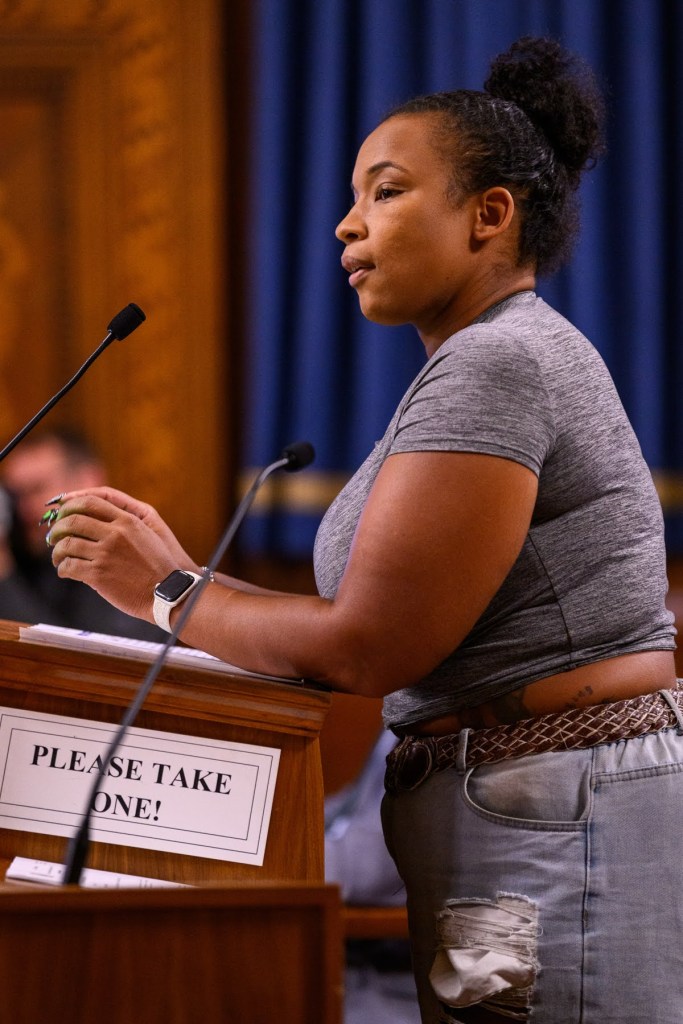 Tanisha Long of Crafton Heights speaks against Pittsburgh City Councilor Erika Strassburger’s inclusionary zoning amendment. (Alex Jurkuta/Pittsburgh’s Public Source)
Tanisha Long of Crafton Heights speaks against Pittsburgh City Councilor Erika Strassburger’s inclusionary zoning amendment. (Alex Jurkuta/Pittsburgh’s Public Source)
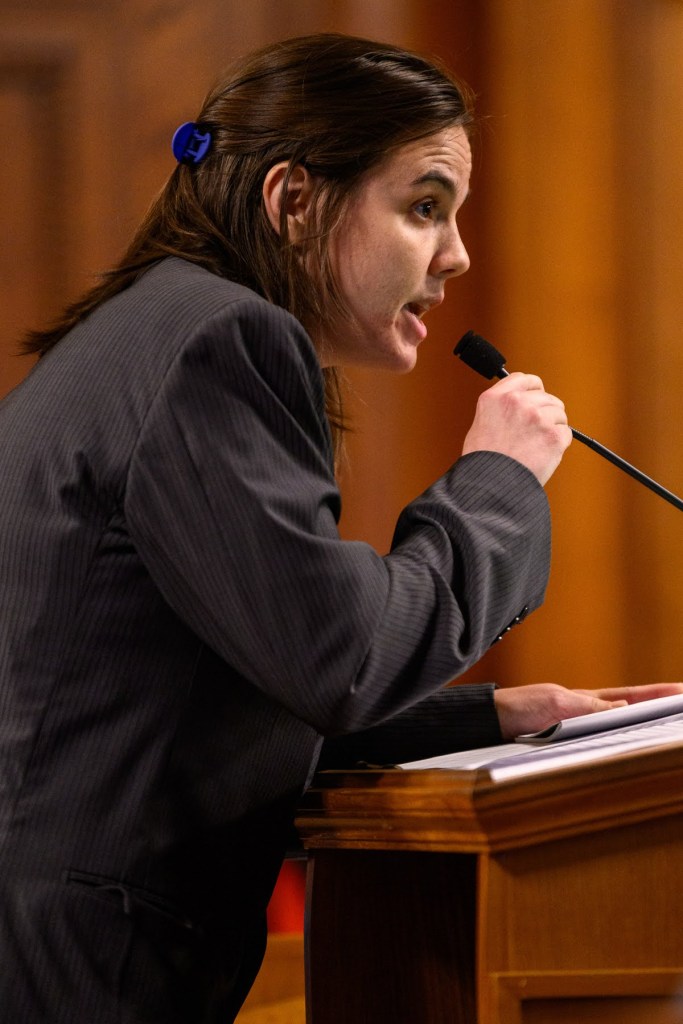 Hailey Phillips of Garfield speaks against the amendment. (Alex Jurkuta/Pittsburgh’s Public Source)
Hailey Phillips of Garfield speaks against the amendment. (Alex Jurkuta/Pittsburgh’s Public Source)
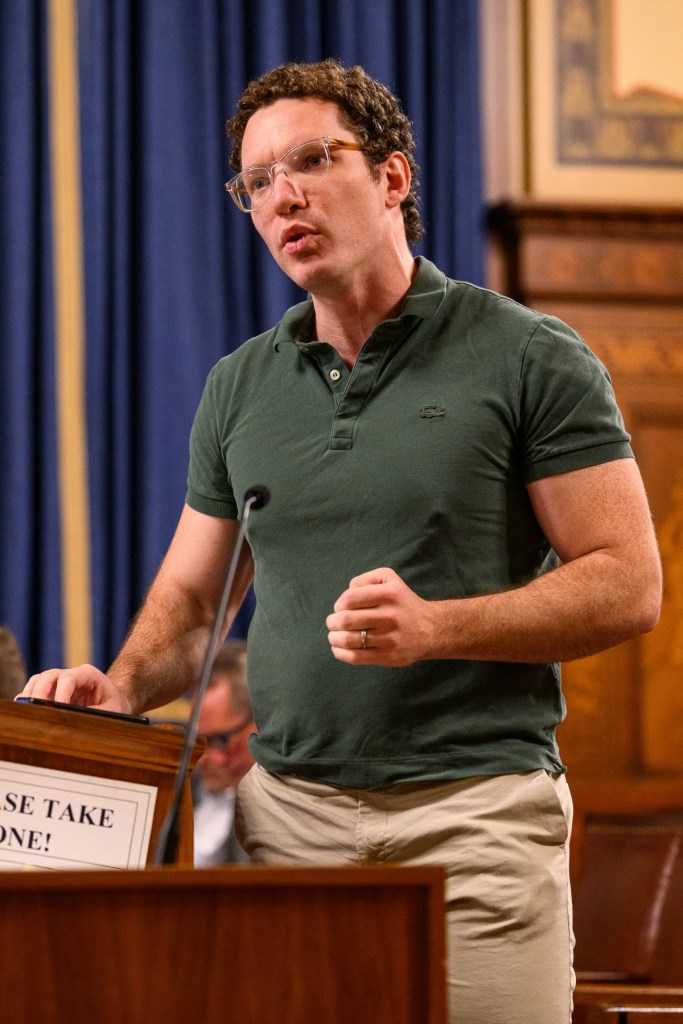 Jack Billings of Downtown speaks on behalf of Pro-Housing Pittsburgh, in favor of the amendment. (Alex Jurkuta/Pittsburgh’s Public Source)
Jack Billings of Downtown speaks on behalf of Pro-Housing Pittsburgh, in favor of the amendment. (Alex Jurkuta/Pittsburgh’s Public Source)
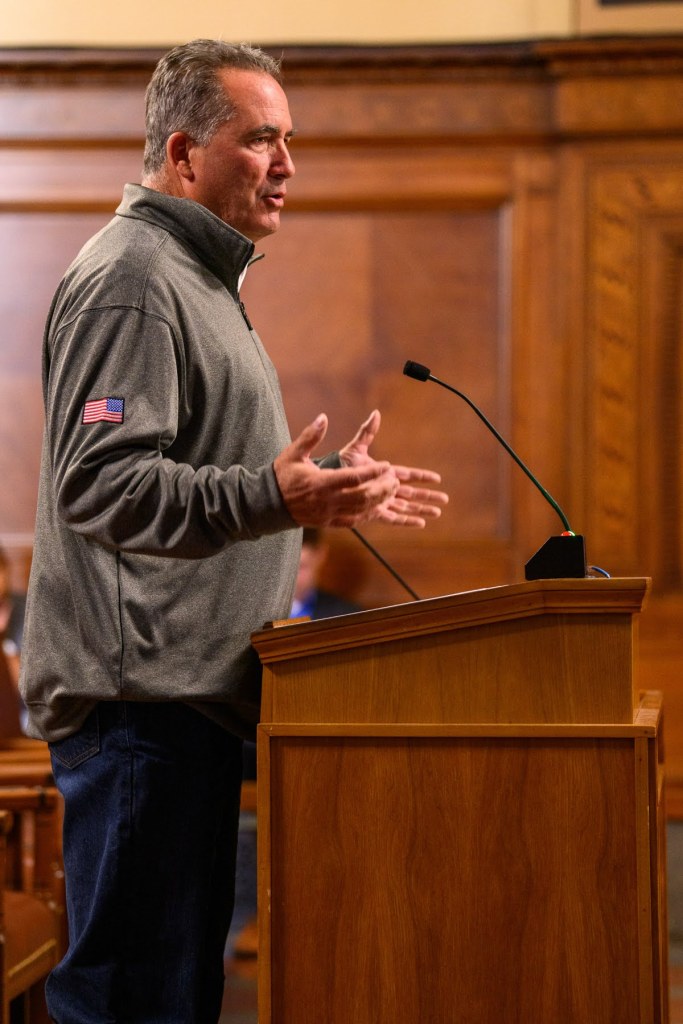 Steve Mazza of Sheraden speaks in favor of the amendment. (Alex Jurkuta/Pittsburgh’s Public Source)
Steve Mazza of Sheraden speaks in favor of the amendment. (Alex Jurkuta/Pittsburgh’s Public Source)
“I’m about jobs, construction,” said Steve Mazza, a resident of Sheraden and a member of the Planning Commission.
Mazza said that as a union guy he worries that having mandatory inclusionary zoning would depress union construction jobs and lead to a general slump in the economy. As an alternative to zoning reform, Mazza said there are thousands of vacant properties in the city that can be used to create more housing opportunities.
“We can turn those properties around and keep them out of the hands of speculators,” Mazza said. “To force everyone to do [affordable units] is going about it the wrong way. We don’t need to keep fighting about this.”
Other residents warned that voting for Strassburger’s amendment would lead to the city further gentrifying while others threatened to vote against council members if they supported the amendment.
The planning commission can now take up the amended zoning legislation and either give a positive or negative recommendation.
Eric Jankiewicz is PublicSource’s economic development reporter and can be reached at ericj@publicsource.org or on Twitter @ericjankiewicz.
This article first appeared on Pittsburgh’s Public Source and is republished here under a Creative Commons Attribution-NoDerivatives 4.0 International License.![]()

